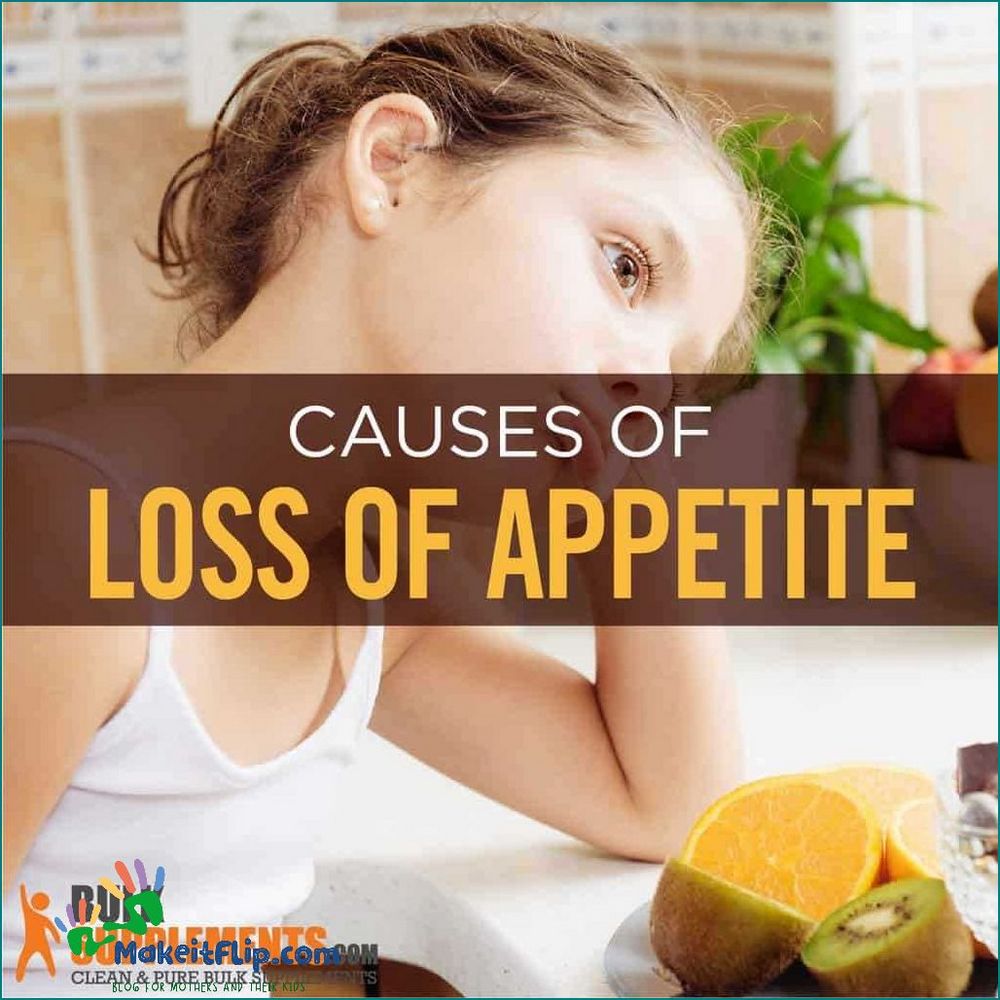Contents
- 1 Causes, Symptoms, and Treatment of Sudden Increased Appetite: Understanding the Reasons Behind Excessive Hunger
- 1.1 Causes of Sudden Increased Appetite
- 1.2 FAQ about topic Sudden Increased Appetite Causes Symptoms and Treatment
- 1.2.1 What are the common causes of sudden increased appetite?
- 1.2.2 What are the symptoms of sudden increased appetite?
- 1.2.3 How is sudden increased appetite diagnosed?
- 1.2.4 What are the treatment options for sudden increased appetite?
- 1.2.5 Can sudden increased appetite be a sign of a serious medical condition?
- 1.2.6 What are the common causes of sudden increased appetite?
- 1.2.7 How can hormonal imbalances lead to increased appetite?
- 1.2.8 Can certain medications cause sudden increased appetite?
Causes, Symptoms, and Treatment of Sudden Increased Appetite: Understanding the Reasons Behind Excessive Hunger

Increased appetite, also known as polyphagia, is a condition characterized by an abnormal and sudden surge in hunger. It is often accompanied by a strong desire to eat more food than usual. This condition can be caused by various factors, including hormonal imbalances, psychological factors, certain medications, and underlying medical conditions.
One of the common causes of increased appetite is hormonal imbalances, such as an overactive thyroid gland or diabetes. In these cases, the body’s hormones are not functioning properly, leading to an increased appetite. Psychological factors, such as stress, anxiety, and depression, can also contribute to excessive hunger. These emotions can trigger the release of certain hormones that stimulate appetite.
Certain medications, such as corticosteroids and antidepressants, can also cause an increase in appetite as a side effect. Additionally, certain medical conditions, such as hypoglycemia, hyperthyroidism, and certain types of cancer, can lead to sudden increased appetite. It is important to consult a healthcare professional to determine the underlying cause of increased appetite and receive appropriate treatment.
Treatment for increased appetite depends on the underlying cause. In cases where hormonal imbalances are the culprit, medication or hormone therapy may be prescribed to regulate hormone levels. Psychological factors may require therapy or counseling to address the underlying emotional issues. In some cases, lifestyle changes, such as adopting a balanced diet and regular exercise routine, may help manage increased appetite.
In conclusion, sudden increased appetite can be caused by various factors, including hormonal imbalances, psychological factors, certain medications, and underlying medical conditions. It is important to seek medical advice if you experience a sudden surge in hunger to determine the underlying cause and receive appropriate treatment.
Causes of Sudden Increased Appetite

There are several potential causes for a sudden increase in appetite. It is important to identify the underlying cause in order to determine the appropriate treatment. Some possible causes include:
Hormonal Imbalances: Hormonal imbalances, such as an overactive thyroid (hyperthyroidism) or diabetes, can lead to an increased appetite. These conditions affect the body’s metabolism and can cause an increase in hunger.
Stress: Stress can trigger emotional eating and lead to a sudden increase in appetite. When we are stressed, our bodies release cortisol, a hormone that can increase hunger and cravings for high-calorie foods.
Medications: Certain medications, such as corticosteroids or antidepressants, can cause an increase in appetite as a side effect. If you have recently started taking a new medication and noticed an increase in hunger, it is important to discuss this with your healthcare provider.
Pregnancy: During pregnancy, hormonal changes can cause an increase in appetite. This is a normal part of the body’s preparation for nourishing both the mother and the developing fetus.
Medical Conditions: Certain medical conditions, such as Prader-Willi syndrome or hypoglycemia, can cause a sudden increase in appetite. These conditions require medical attention and treatment to manage the symptoms.
Increased Physical Activity: Engaging in intense physical activity or exercise can increase appetite as the body requires more energy to fuel the muscles. This is a normal response to increased physical exertion.
Psychological Factors: Psychological factors, such as boredom, depression, or anxiety, can also lead to an increase in appetite. Emotional eating is a common coping mechanism for many individuals.
Insufficient Sleep: Lack of sleep can disrupt the body’s hunger-regulating hormones, leading to an increase in appetite. This can result in cravings for high-calorie foods and a tendency to overeat.
Metabolic Disorders: Certain metabolic disorders, such as Cushing’s syndrome or polycystic ovary syndrome (PCOS), can cause hormonal imbalances and lead to an increased appetite.
Genetic Factors: Some individuals may have a genetic predisposition to a higher appetite. This can be influenced by factors such as family history, metabolism, and body composition.
If you are experiencing a sudden increase in appetite, it is important to consult with a healthcare professional to determine the underlying cause and develop an appropriate treatment plan.
Hormonal Imbalance

Hormonal imbalance can be one of the causes of increased appetite. When certain hormones in the body are not functioning properly, it can lead to an increase in hunger and cravings. One hormone that plays a key role in regulating appetite is leptin. Leptin is produced by fat cells and helps to control hunger by signaling to the brain when the body has had enough to eat.
In cases of hormonal imbalance, leptin levels may be disrupted, leading to a decrease in its effectiveness. This can result in a constant feeling of hunger, even when the body doesn’t actually need more food. Additionally, other hormones such as ghrelin, which stimulates appetite, may be overproduced, further contributing to increased hunger.
There are several factors that can contribute to hormonal imbalances, including stress, certain medical conditions, and changes in hormone levels due to aging. In women, hormonal imbalances can also occur during pregnancy, menopause, or as a result of certain medications or birth control methods.
If you suspect that hormonal imbalance may be causing your increased appetite, it is important to consult with a healthcare professional. They can perform tests to determine if there are any underlying hormonal issues and develop a treatment plan to address them. Treatment options may include hormone replacement therapy, lifestyle changes, and medication.
It is important to note that while hormonal imbalance can contribute to increased appetite, it is not the sole cause. Other factors such as emotional or psychological factors, certain medications, and medical conditions can also play a role. Therefore, it is essential to seek medical advice to determine the underlying cause of your increased appetite and develop an appropriate treatment plan.
Stress and Emotional Factors
Sudden increased appetite can be triggered by stress and emotional factors. When individuals experience high levels of stress or intense emotions, their body’s natural response is to release stress hormones, such as cortisol. These hormones can affect appetite and lead to an increase in food cravings and consumption.
Stress eating, also known as emotional eating, is a common coping mechanism for many people. During times of stress or emotional distress, individuals may turn to food as a way to comfort themselves or distract from their emotions. This can result in a sudden and increased appetite.
In addition, stress and emotional factors can disrupt normal eating patterns and lead to irregular meal times. This can further contribute to a sudden increase in appetite as the body tries to compensate for missed meals or inadequate nutrition.
Managing stress and emotional factors is essential in controlling sudden increased appetite. Engaging in stress-reducing activities, such as exercise, meditation, or hobbies, can help regulate appetite and prevent overeating. Seeking support from friends, family, or a therapist can also be beneficial in managing stress and emotional eating.
Medication Side Effects

Some medications can cause an increase in appetite as a side effect. This can lead to sudden and excessive eating, resulting in weight gain. It is important to be aware of this potential side effect when starting a new medication.
There are several types of medications that can cause an increase in appetite. Antidepressants, antipsychotics, corticosteroids, and certain antihistamines are known to have this effect. These medications can alter the levels of certain chemicals in the brain that regulate hunger and satiety.
If you notice a sudden increase in appetite after starting a new medication, it is important to talk to your doctor. They may be able to adjust your dosage or switch you to a different medication that does not have this side effect. It is important to find a balance between managing your symptoms and maintaining a healthy weight.
In some cases, the increased appetite caused by medication may be temporary and subside as your body adjusts to the medication. However, in other cases, it may persist for as long as you are taking the medication. It is important to be mindful of your eating habits and make healthy choices to prevent excessive weight gain.
Additionally, it is important to note that not everyone will experience an increase in appetite as a side effect of medication. Each person reacts differently to medication, and some individuals may not be affected in this way at all.
If you are concerned about the potential side effects of a medication, it is important to discuss your concerns with your doctor. They can provide you with more information about the specific medication you are taking and help you make an informed decision about your treatment options.
FAQ about topic Sudden Increased Appetite Causes Symptoms and Treatment
What are the common causes of sudden increased appetite?
Common causes of sudden increased appetite include hormonal imbalances, certain medications, stress, and certain medical conditions such as diabetes or hyperthyroidism.
What are the symptoms of sudden increased appetite?
Symptoms of sudden increased appetite may include constant hunger, weight gain, cravings for specific types of food, and difficulty controlling food intake.
How is sudden increased appetite diagnosed?
Sudden increased appetite can be diagnosed through a physical examination, blood tests to check hormone levels, and possibly imaging tests to rule out any underlying medical conditions.
What are the treatment options for sudden increased appetite?
Treatment for sudden increased appetite depends on the underlying cause. It may involve lifestyle changes such as a healthy diet and regular exercise, medication to regulate hormone levels, or management of any underlying medical conditions.
Can sudden increased appetite be a sign of a serious medical condition?
Yes, sudden increased appetite can be a sign of a serious medical condition such as diabetes or hyperthyroidism. It is important to consult a healthcare professional for proper diagnosis and treatment.
What are the common causes of sudden increased appetite?
The common causes of sudden increased appetite include hormonal imbalances, certain medications, stress, and certain medical conditions such as diabetes.
How can hormonal imbalances lead to increased appetite?
Hormonal imbalances, such as an overactive thyroid or polycystic ovary syndrome (PCOS), can disrupt the normal regulation of appetite hormones, leading to increased hunger.
Can certain medications cause sudden increased appetite?
Yes, certain medications such as corticosteroids, antidepressants, and antipsychotics can increase appetite as a side effect.
I’m Diana Ricciardi, the author behind Makeitflip.com. My blog is a dedicated space for mothers and their kids, where I share valuable insights, tips, and information to make parenting a bit easier and more enjoyable.
From finding the best booster seat high chair for your child, understanding the connection between sciatica and hip pain, to exploring the benefits of pooping in relieving acid reflux, I cover a range of topics that are essential for every parent.
My goal is to provide you with practical advice and solutions that you can easily incorporate into your daily life, ensuring that you and your child have the best possible experience during these precious years.
